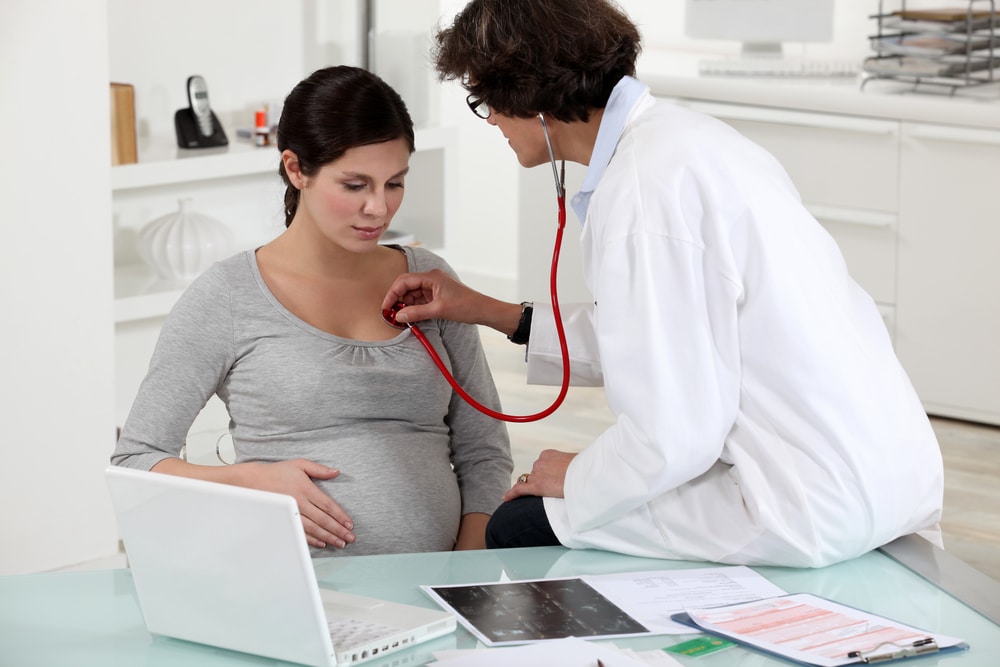Pregnancy can lead to all kinds of changes in your body. When you are newly pregnant at one of the first doctor appointments you have your doctor will draw some blood. These blood tests are to make sure that your levels are doing okay during the pregnancy. One of the levels that your doctor is looking for is your iron level. About 25% of pregnancies will result in an iron deficiency. Anemia is a blood condition where there are lower levels of red blood cells. Anemia can make you feel tired or weak. While pregnant your body produces more blood to support your baby’s growth, so it is very easy to end up with a mild case of anemia. Do not panic though it is something that can be treated. And even if you don’t have anemia before pregnancy anyone can develop it during pregnancy.
Risk Factors
There are some risk factors that can make you more prone to pregnancy anemia. If you are pregnant with multiple babies, such as twins or more, you can be more at risk for pregnancy anemia. Other risks include if you have two pregnancies close together, or are a pregnant teenager. If you have experienced severe morning sickness with vomiting you could be more prone as well. Obviously if you have anemia before you become pregnant the chances of you continuing to have it while pregnant increases greatly. If you have pregnancy anemia during one of your pregnancies it does not mean you will have it for all of your pregnancies. Look at your diet if you aren’t consuming enough iron rich foods such as spinach, legumes, shellfish, quinoa, or turkey then your body may not have enough iron produced causing you to become anemic. Â
Symptoms
The most common symptom of pregnancy anemia is tiredness or weakness. Pregnancy alone can make you feel exhausted so if that is your only symptom it may take some time to realize that you are anemic. Thankfully make sure your doctor takes a blood draw to check your levels. You could also experience pale skin, lips or nails, dizziness, shortness of breath, rapid heartbeat, trouble concentrating or cold hands and feet. If you experience any of these at any time during your pregnancy you should reach out to your doctor. You can develop pregnancy anemia at any time during your pregnancy not necessarily always right in the beginning. Your doctor can take blood at any time during your pregnancy to test to make sure you haven’t developed anemia.Â
Treatment
Anemia can be treated. Usually taking a prenatal vitamin with iron in it is enough to balance out pregnancy anemia. Make sure that your prenatal vitamin does have some iron in it. While pregnant you need about 27mg of iron a day. That is an increase of almost 10mg daily that you need to consume while pregnant. Sometimes you may need an additional iron supplement if your prenatal is not giving you enough and you aren’t getting enough iron from the food you are eating. Both of these vitamins you can get over the counter. A goal to have is to try and eat at least 3 servings daily of iron. Try and eat high iron foods such as red meat, poultry, fish, eggs, leafy dark greens, beans, lentils, tofu, nuts or seeds. While you eat your high iron foods try eating some foods that are high in vitamin C as well these will help your body digest the iron easier. Foods that are high in vitamin C are citrus fruits, strawberries, kiwis, tomatoes, and bell peppers.
Pregnancy anemia that goes untreated can lead to some issues with your pregnancy. You could become at risk for preterm labor or a low birth weight baby. During pregnancy if the anemia is severe or after delivery you may need a blood transfusion. Your baby could also be at risk of developing anemia themselves. Or your baby could be at risk of being a child with developmental delays. Pregnancy anemia can also lead to postpartum depression. You will want to make sure that you do get diagnosed so you can be treated. If you find out that you are anemic make sure to start taking your vitamins or extra iron supplements as soon as possible so that you and your baby won’t be at risk.
Pregnancy anemia is common and treatable. And with the right vitamins and supplements you may not even show any symptoms. Talk with your doctor during your prenatal appointments if you have any questions or concerns. Make sure that you tell your doctor if you were anemic before you became pregnant. Blood can be taken at any point during pregnancy to check for anemia. With taken supplements you and your baby can have an anemic risk free pregnancy. Increase your iron food intake, your body is in the process of growing a tiny human, make sure that you are fueling it with all the right things that you need to.Â
You are at an increased risk for anemia while pregnant! #HealthStatus
About 25% of pregnancies will result in an iron deficiency.
Sources:
webmd.com
mayoclinic.org
americanpregnancy.org








Reply